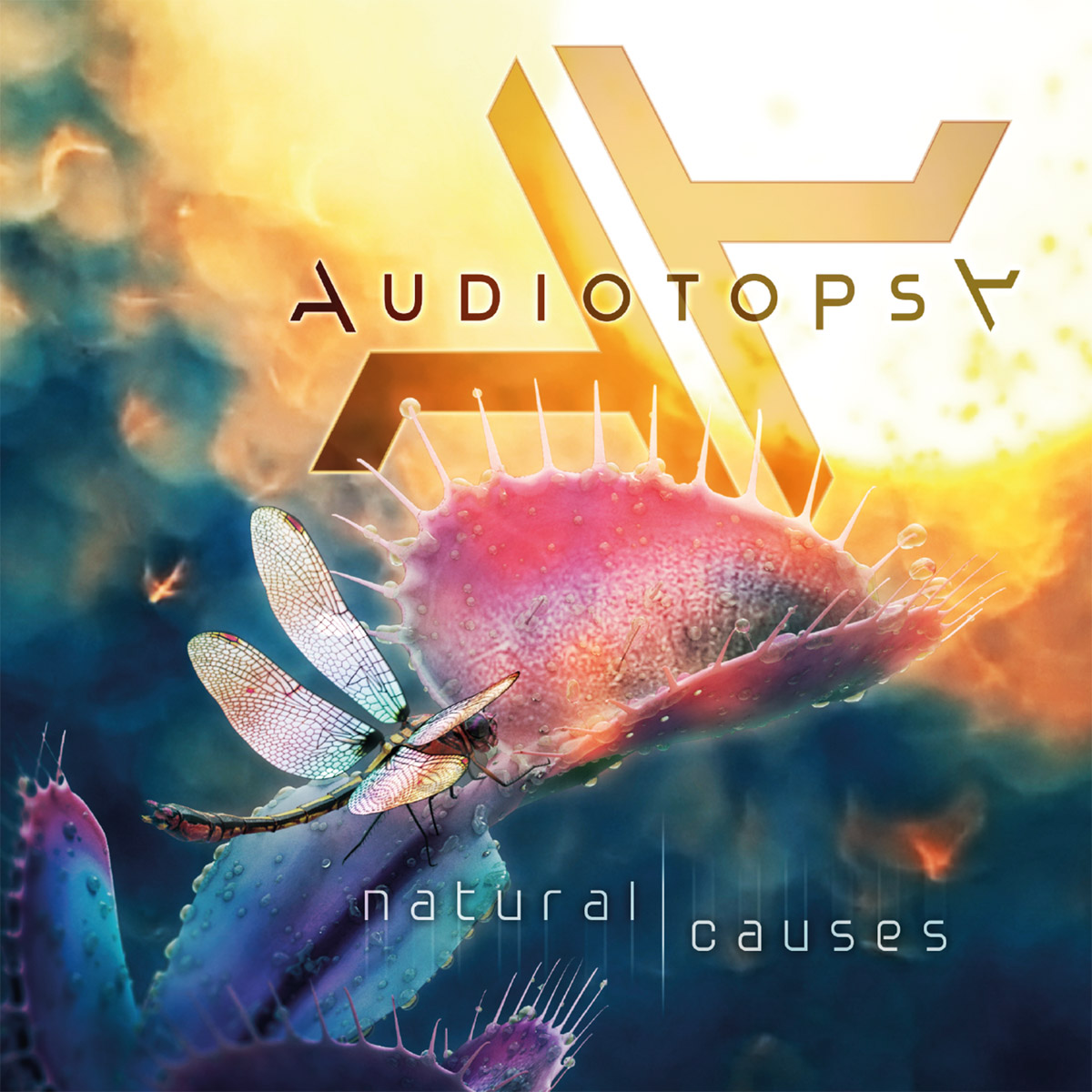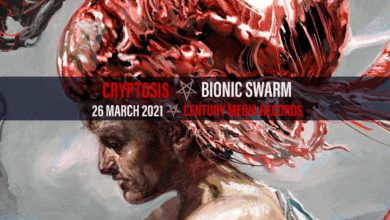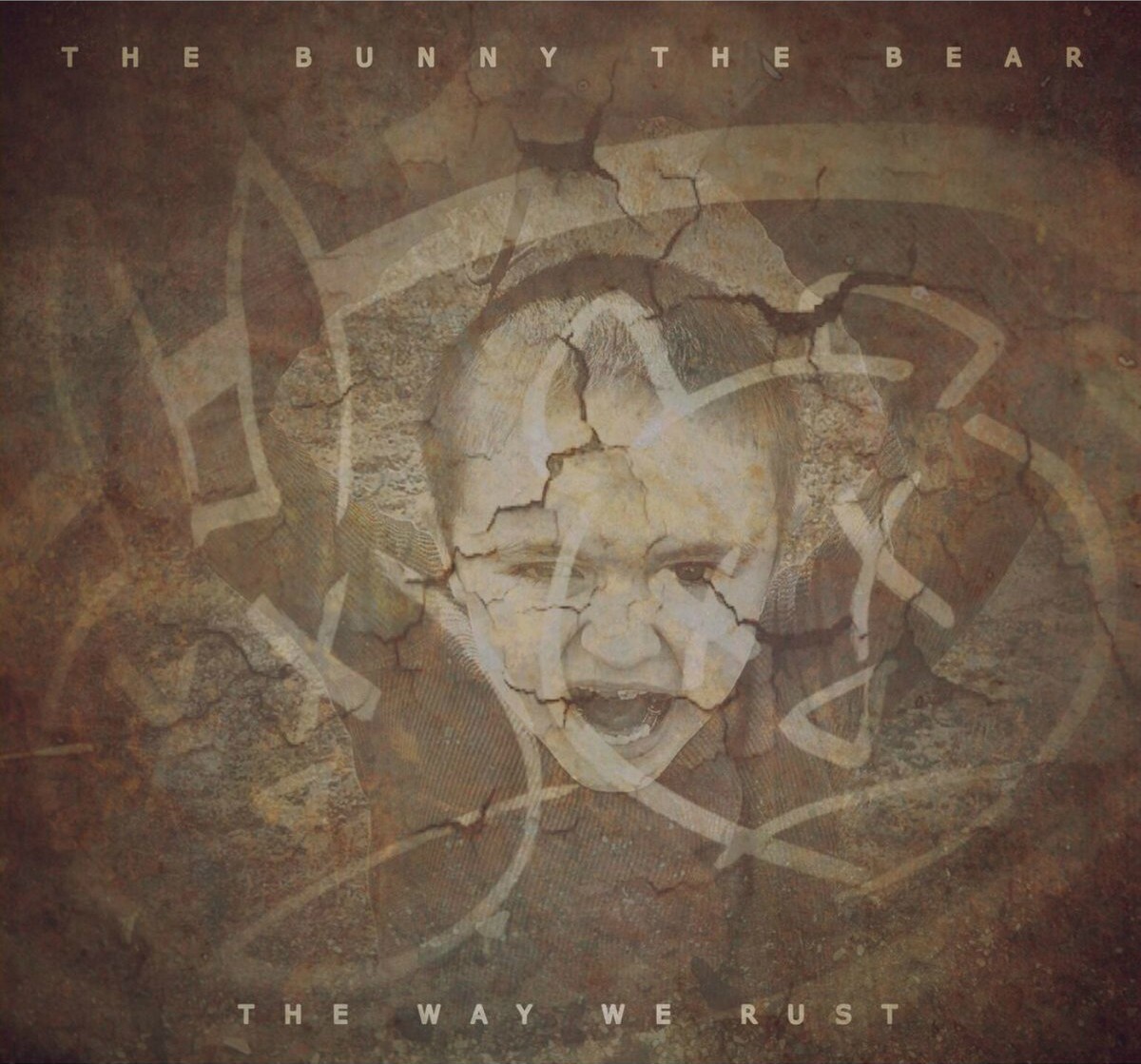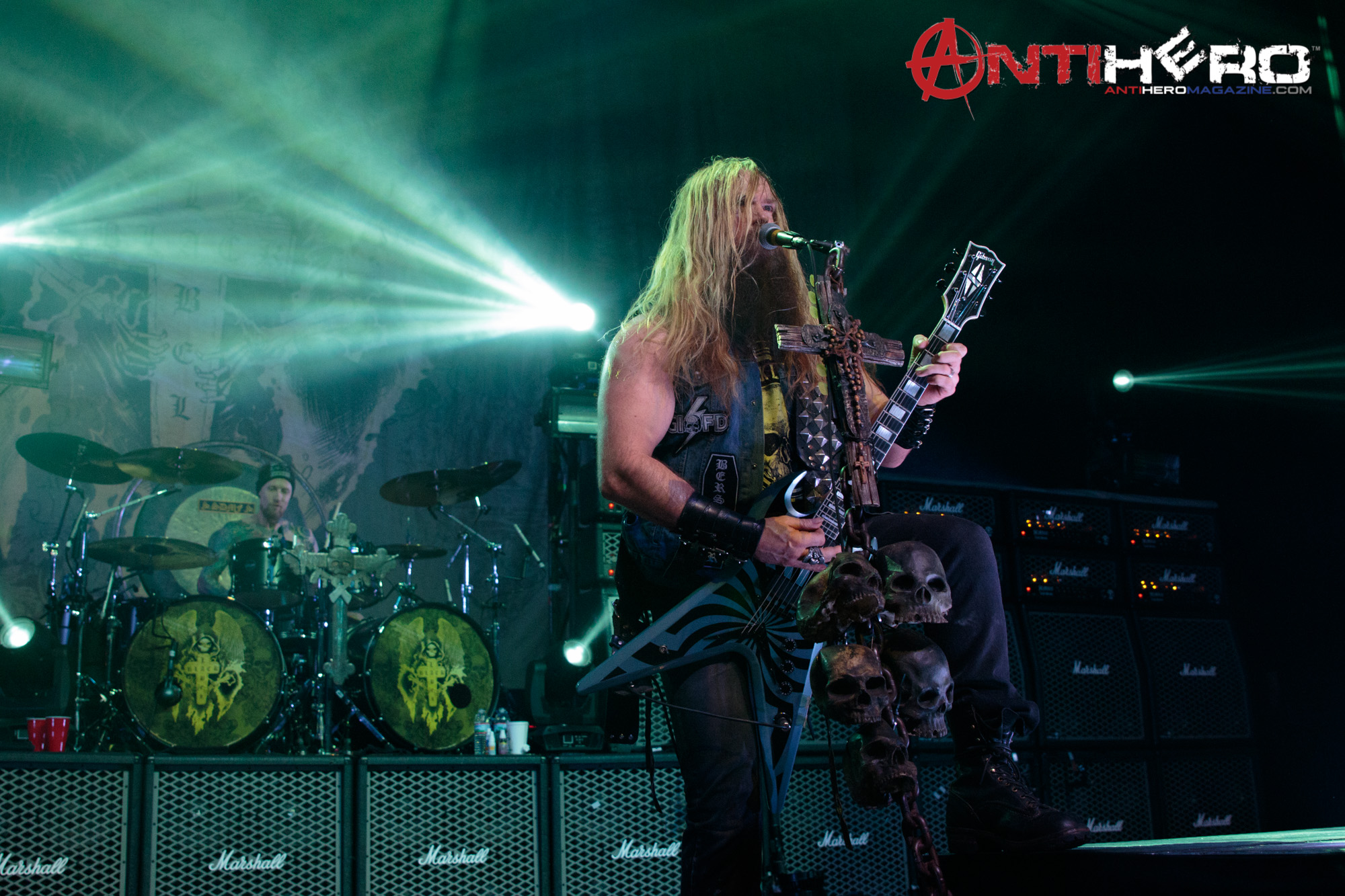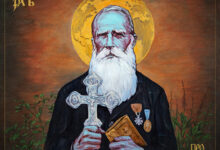AUDIOTOPSY – Natural Causes
Audiotopsy earns an immediate point for cleverness in naming their debut album Natural Causes. To an extent, their name does imply a procedure requiring an in-depth examination. But what is ultimately revealed is pure history. All of its members have been active since the 90s, and their chemistry is established from the get-go. Together, Mudvayne members Greg Tribbett and Matt McDonough (guitar and drums, respectively) unite with bassist Perry Stern and Skrape vocalist Billy Keeton, in order to build and perfect an album worth waiting for. [columns] [column size=”1/3″]
Album Title: Natural Causes
Release Date: August 28, 2015
Playing Time: 00:49:02
Label: Napalm Records
The first track, “Headshot,” is already a fan favorite from its first appearance on Soundcloud, and I can understand why. Keeton’s grungy aesthetic is effective, especially in the opening lines “Now that we rode this far, they know just who we are.” Those lyrics alone already lay the foundation for a universal umbrella theme: struggle is followed by perseverance, which results in growth and maturity. The vocals are appropriately raspy and torn in conveying the singer’s walks of life, and are accentuated by slight tinges of reverb. I admire how he effortlessly shifts between enharmonic and clean singing. Once he hits a scream, he knows exactly when to back off before becoming too grating. The instrumentation emits an industrial feel which is the ideal backdrop for a warzone setting. “All We Know” is a solid follow-up that expands upon that subject matter. In this song, Keeton expresses being deterred by the seemingly formulaic tribulations of danger, and compares it to being on a TV show. There was surprising comfort in how his voice guided me through these hardships. Likewise, the following track “LYLAB” focuses on a similar loss of sensation, and features that same level of encouragement. The bluesy-turned-nu metal riff is a fantastic setup. Usually when I hear a nu-metal song with profanity in the title, the delivery comes off as unconvincing. From this song’s context, however, Keeton’s delivery feels as if a spike was driven right through his heart. I instantly thought back to when I felt betrayed by someone with whom I had openly shared my weaknesses, hopes, and dreams. What came with that betrayal was not only her unawareness of having done so, but also the constant downplaying of my heartache. Hearing the chorus, I felt how accurately it represented what was in my mind at the time—unbridled screams bandaged by subtly warm harmonies. And amidst that seemingly unbearable pain, I still had a decent amount of faith carrying me along.
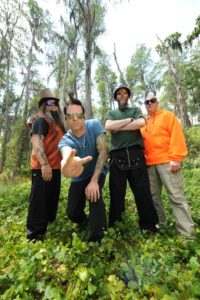 As I got to the latter part of the album, I took further note of its down-to-earth thematic interpretations. The ballad “Swim” is one of the more inspirational songs, which deals with finding the space to heal one’s soul. This is one of the least metal songs on the album, which is by no means a flaw, as I was ready for a change of pace. There is a much greater focus on melody, still with a great deal of rocking distortion. Keeton’s voice really shines here especially when enhanced with chorus and reverb effects. The background harmonies during the intro and chorus bring the track to another level, as they sit comfortably in the mix. “Disguise Your Devils” has a sympathetic quality in that does not directly pertain to the ramifications of sinful actions. Rather, it addresses the crippling effects of depression, specifically the kind that influence a defeatist attitude. Having been a victim myself, I would struggle to not be discouraged from achieving my goals. When Keeton sang “You missed the call, and the message is dead” during the bridge, it was a perfect means of expressing failure in pursuing an opportunity. A second chorus intensifies the song with additional orchestral instrumentation, which really drove it home. The final track, “Frozen Scars,” views these wounds from not only a negative, but a positive perspective as well. While they may numb one’s outlook on life, they are also a crucial factor to their emotional growth. The song features a fine balance of dreamy and distorted guitars, the only real metal influence being the bridge. It is the longest and most involved track—each component of instrumentation having its moments to shine—and brings the album to a satisfying close.
As I got to the latter part of the album, I took further note of its down-to-earth thematic interpretations. The ballad “Swim” is one of the more inspirational songs, which deals with finding the space to heal one’s soul. This is one of the least metal songs on the album, which is by no means a flaw, as I was ready for a change of pace. There is a much greater focus on melody, still with a great deal of rocking distortion. Keeton’s voice really shines here especially when enhanced with chorus and reverb effects. The background harmonies during the intro and chorus bring the track to another level, as they sit comfortably in the mix. “Disguise Your Devils” has a sympathetic quality in that does not directly pertain to the ramifications of sinful actions. Rather, it addresses the crippling effects of depression, specifically the kind that influence a defeatist attitude. Having been a victim myself, I would struggle to not be discouraged from achieving my goals. When Keeton sang “You missed the call, and the message is dead” during the bridge, it was a perfect means of expressing failure in pursuing an opportunity. A second chorus intensifies the song with additional orchestral instrumentation, which really drove it home. The final track, “Frozen Scars,” views these wounds from not only a negative, but a positive perspective as well. While they may numb one’s outlook on life, they are also a crucial factor to their emotional growth. The song features a fine balance of dreamy and distorted guitars, the only real metal influence being the bridge. It is the longest and most involved track—each component of instrumentation having its moments to shine—and brings the album to a satisfying close.
Overall, Natural Causes is an undeniably impressive debut from a band whose members have lived and breathed life. This was the first time in a while that I heard a metal album with distinctly positive intentions. It positions itself right at the level of the listener, addressing complex behaviors in an accessible manner that never seems trite or dismissive. Fans of Mudvayne and Skrape will truly feel the force of Audiotopsy’s transition to full-length territory.
[9/10]
En español
Audiotopsy gana un punto inmediato de la inteligencia en el nombramiento de su álbum debut “Natural Causes”. Hasta cierto punto, su nombre no implica un procedimiento que requiera un examen en profundidad. Pero lo que se revela en última instancia, es historia pura. Todos sus miembros han estado activos desde los años 90, y su química está establecida desde el primer momento. Juntos, los miembros de Mudvayne Greg Tribbett y Matt McDonough (guitarra y batería, respectivamente) se unen con el bajista Perry Stern y el vocalista de Skrape Billy Keeton, con el fin de construir y perfeccionar un álbum que valiera la pena esperar.
El primer track, “Headshot” ya es un favorito de los fans desde su primera aparición en Soundcloud, y puedo entender por qué. La voz de Keeton es eficaz, sobre todo en las primeras líneas “Now that we rode this far, they know just who we are”. Esas letras solas ya sientan las bases para un tema de paraguas universales: la lucha es seguida por la perseverancia, lo que resulta en el crecimiento y madurez. Las voces son apropiadamente roncas y rasgadas en la transmisión de los sectores de la vida del cantante, y se acentúan por ligeros matices de reverberación. Admiro la forma en que sin esfuerzo se mueve entre el canto enarmónico y limpio. Una vez que se realiza un grito, él sabe exactamente cuándo retroceder antes de convertirse en demasiado ruidoso o molesto. La instrumentación emite un aire industrial, que es el escenario ideal para un entorno de una zona de guerra. “All We Know” es un sólido de seguimiento que se expande sobre ese tema. En esta canción, Keeton expresa ser disuadido por las tribulaciones aparentemente fórmuladas de peligro, y lo compara con estar en un programa de televisión. No fue sorprendente la comodidad en cómo su voz me guió a través de estas dificultades. Del mismo modo, la siguiente pista “LYLAB” se centra en una pérdida similar de la sensación, y cuenta con el mismo nivel de estímulo. El riff de metal-blues convertido en nu es la configuración fantástica. Por lo general, cuando escucho una canción de nu-metal con malas palabras en el título, la entrega sale como poco convincente. Desde el contexto de la canción, sin embargo, la entrega de Keeton se siente como si un repunte fuese impulsado a través de su corazón. Al instante me acordé de cuando me sentí traicionado por alguien con quien tuve que compartir abiertamente mis debilidades, esperanzas y sueños. Lo que vino con esa traición no sólo era su falta de conciencia de haberlo hecho, sino también la minimización constante de mi angustia. Al oír el coro, sentí la precisión con que representaba lo que estaba en mi mente en los gritos en tiempo desenfrenado vendados por armonías sutilmente cálidas. Y en medio de ese dolor aparentemente insoportable, todavía tenía una buena cantidad de fe que llevaba a lo largo de mí.
Cuando llegué a la última parte del álbum, tomé nota de sus interpretaciones temáticas y puse los pies en la tierra. La balada “Swim” es una de las canciones más inspiradas, que se ocupa de encontrar el espacio para sanar el alma. Esta es una de las canciones menos metal en el álbum, que de ninguna manera es un defecto, ya que estaba listo para un cambio de ritmo. Hay un mayor enfoque en la melodía, aún con una gran cantidad de mecedora distorsión. La voz de Keeton realmente brilla aquí especialmente cuando mejora con los coros y reverb. Las armonías de fondo durante la intro y el coro llevan a la pista a otro nivel, ya que encaja cómodamente en la mezcla. “Disguise Your Devils” tiene una calidad simpática en que no pertenecen directamente a las consecuencias de las acciones pecaminosas. Más bien, se ocupa de los efectos paralizantes de la depresión, especialmente el tipo que influye en una actitud derrotista. Después de haber sido víctima de si mí mismo, yo lucho por no se desanime en alcanzar mis metas. Cuando Keeton cantó “You missed the call, and the message is dead” durante el puente, era un medio perfecto para expresar el fracaso en la búsqueda de una oportunidad. Un segundo coro intensifica la canción con la instrumentación orquestal adicional, lo que realmente llevó a su casa. La última canción, “Frozen Scars”, considera que estas heridas no sólo son negativas, sino que tambien tiene una perspectiva positiva. Si bien pueden adormecer la propia visión de la vida, también son un factor crucial para su crecimiento emocional. La canción cuenta con un buen equilibrio de las guitarras de ensueño y distorsionadas, la única influencia metal verdadera. Es el track con cada componente más largo y más involucrados de la instrumentación que tiene sus momentos de brillo y trae a el álbum a un cierre satisfactorio.
En general, “Natural Causes” es un innegablemente impresionante debut de una banda cuyos miembros han vivido y respirado vida. Esta fue la primera vez en mucho tiempo que escuché un disco de metal con intenciones claramente positivas. Se posiciona a la derecha en el nivel del oyente, dirigiéndose a comportamientos complejos de una forma accesible que nunca parece trivial o desdeñoso. Los fans de Mudvayne y Skrape sentirán verdaderamente la fuerza de la transición de Audiotopsy al territorio de cuerpo entero.
[9/10]

